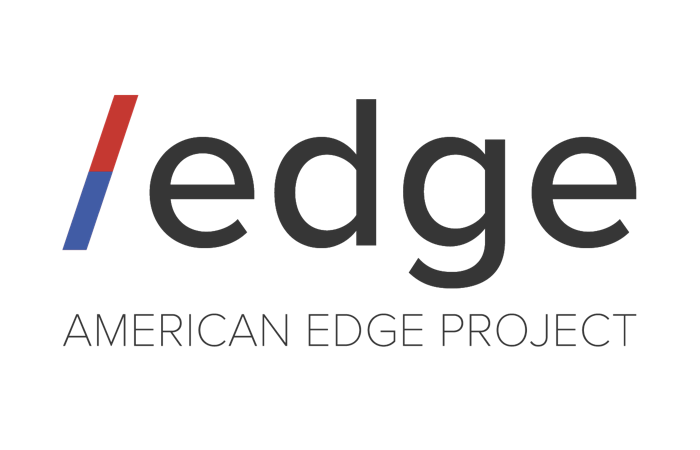88% of Voters Feel Free Expression on the Internet Separates U.S. from Authoritarian Regimes Majority of Voters Support the Transparent Regulation of Harmful Content
WASHINGTON, DC – A new survey released today by Ipsos in partnership with the American Edge Project (AEP) shows that even after years of intense debate on how to manage content on digital platforms, Americans are reaffirming their support for an open and accessible internet that encourages free expression and dialogue, which they view as a cornerstone of American democracy.
A majority of voters also believe the internet in China and Russia is significantly more restrictive than the U.S. They believe the open internet is what separates America from authoritarian regimes, and that failure to champion a free and accessible system could lead to Chinese or Russian-style political repression domestically.
At the same time, while there is a high value placed on freedom of expression and the protection of an open and accessible internet, voters also support standards that regulate harmful and illegal content, and they are looking to the Biden administration to establish these rules of the road.
“An open and free internet is seen as central to ensuring freedom and individual rights, and as a necessary part of a healthy democracy,” said former Federal Election Commission Chairman Bradley A. Smith and member of the board of directors of the American Edge Project. “The alternative is stark. Around the world, authoritarian regimes with strict internet restrictions on speech underscore the severity of what’s at stake in the broader battle between censorship and free expression online. As Washington debates regulating the internet against ‘disinformation,’ lawmakers should heed the deep desire among their constituents to keep America’s internet open and free.”
This poll was conducted by Ipsos, on behalf of the American Edge Project, and surveyed 1,019 registered voters between January 28, 2021 and February 3, 2021. Key findings include:
- Even against the backdrop of heightened concern about misinformation on digital platforms, voters want to keep the internet open and accessible. Despite years of contentious debate on how to manage misinformation on digital platforms, voters remain staunchly committed to protecting an open and accessible internet, which is viewed as a pillar of American values like free speech. A bipartisan majority prefers free expression on the internet even if users post things that challenge their beliefs. Over sevenin-10 (71%) believe “it’s more important to keep the internet open and accessible to all, even if some people post content I disagree with.” This includes 60% of Democrats, 79% of Republicans, and 81% of independents. Underpinning this belief is near-universal agreement that an open and accessible internet is important to freedom of expression (96%), government accountability (94%), and America’s role in the world (93%). Similarly, over eight-in-10 (84%) believe an open and free internet is a necessary part of a healthy democracy.
- Voters believe authoritarian versions of the internet run counter to American values, and believe the U.S. can – and should – lead an open and free internet. Over seven-in-10 voters (72%) agree that “China uses internet surveillance to persecute political opponents, and something similar could happen in the U.S. if the internet is tightly controlled.” This is likely due to the fact that the U.S. internet is more tolerant of free expression, even for controversial ideas, than the Chinese or Russian models (74% say this describes the U.S.; 36% China; 33% Russia). And tellingly, nearly nine-in-10 (88%) agree that “the ability to speak freely on the internet is one of the freedoms that separates the U.S. from authoritarian countries like China, Russia, and Iran.” As a result, a plurality (37%) of voters believe the U.S. should lead the way in setting rules and standards for the internet, compared with 2% of voters who prefer Chinese leadership.
- Although Americans want to keep the internet open and accessible, they are also open to rules and standards for harmful and illegal content. A majority (59%) say it is more important to keep the internet open and accessible to all, even if some people abuse that freedom by posting harmful content; but 41% say it is more important to regulate content on the internet, even if that means making it less open accessible. And while 72% of voters call on President Biden to prioritize protecting an open and accessible internet, over half also want the administration to create a standard on how harmful content is regulated on the internet (54%). Moreover, 77% agree that new laws on internet content need to distinguish good actors from bad actors posting illegal content.
The research found that even amid heightened concern about misinformation on digital platforms and heated debate over content regulation, voters want to defend the U.S. model of an open and accessible internet, which is seen as a cornerstone of American democracy and values. At the same time, they call on the Biden administration to establish content standards in a way that protects the freedom of expression online.
To read the full research and analysis from this Ipsos study, see the memo and the presentation.
##
About the American Edge Project: The American Edge Project is a newly formed coalition dedicated to the proposition that American innovators are an essential part of U.S. economic health, national security, and individual freedoms. For more information, visit https://americanedgeproject.org/
About Ipsos: Ipsos is the world’s third largest market research company, present in 90 markets and employing more than 18,000 people.
Our passionately curious research professionals, analysts and scientists have built unique multi-specialist capabilities that provide true understanding and powerful insights into the actions, opinions and motivations of citizens, consumers, patients, customers or employees. We serve more than 5000 clients across the world with 75 business solutions.
Founded in France in 1975, Ipsos is listed on the Euronext Paris since July 1st, 1999. The company is part of the SBF 120 and the Mid-60 index and is eligible for the Deferred Settlement Service (SRD).
